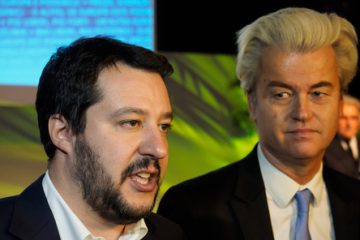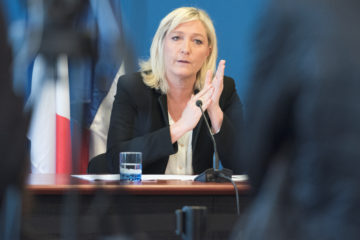
The Drivers of Far-Right Mainstreaming in Public Debates
The far right is gaining power in many liberal democracies. Far-right actors threaten democracy by spreading their nativist, exclusionary and authoritarian ideas through various means (Mudde 2019). They are protesting on the streets, mobilising support on social media, getting elected to parliaments and participating in governments. In Europe, far-right parties have increased their share of the vote in recent years and are currently in government in Italy, Hungary, Finland and Switzerland (Rooduijn et al. 2023). But how can we explain the entrenchment of the far right? I argue that to fully understand the entrenchment of the far right in democracies, we need to look beyond electoral politics and consider the mainstreaming of the far right in public debates, which I …

“Ignore, imitate, coalise”? The difficulties of dealing with the AfD
A few years ago, Germany hardly had any significant populist radical right or extreme right parties in its parliaments. Now, the Alternative for Germany (AfD) has strong local and regional roots and is represented in 14 of 16 state parliaments and in the Bundestag. The AfD: an imminent threat to democracy in Germany? Recent polls for the upcoming 2024 state elections in Brandenburg, Thuringia and Saxony show the AfD as the strongest force in all three states, with support of up to 32% and 35%. Contrary to the oft-repeated perception that the AfD is an East German phenomenon, recent elections in Hesse and Bavaria in October of this year, where the party secured 18.4% and 14.6% respectively, coupled with national …

Far-right triumphs in Argentina and the Netherlands highlight systemic risks to democracies
Geert Wilders’ PVV comes first in Dutch elections for the first time In the recent general election in the Netherlands, the far-right Party for Freedom (Partij voor de Vrijheid, PVV), led by Geert Wilders, won as many as 37 of the 150 seats in the lower house of parliament, with 25 per cent of the vote, more than double its 11 per cent in the 2021 election. The PVV has about half of the 76 seats needed for a majority. The victory comes after Prime Minister Mark Rutte, who has led the “frugal” country for 13 years, surprised everyone by announcing his intention to resign and retire from politics. In second place is the Green-Labour alliance, consisting of the Labour …

Politics as content: populist performance and discourse by reactionary political influencers on YouTube
Marketing itself as a corrective to the monopoly of mainstream media, YouTube has reduced the barriers of access for people to create and star in their own content regardless of their economic and cultural cachet. Among those taking advantage are “political influencers” or “ideological entrepreneurs” – creators who disseminate and monetise politics as content using the techniques of brand influencers to grow audiences. In part shaped by the platform they are on, creators selling politics suffuse their discourse and performance with an anti-elite and transgressive messaging. Ultimately, this has implications for the legitimisation of conspiracies and the mainstreaming of the far right. As with any type of influencing, the creator is the central figure, performing a relatable and authentic identity …

Can Marine Le Pen win the French Presidency?
This piece is based on an article first published on The Loop, ECPR’s Political Science Blog. With the 1st round of the French presidential elections only a few days away, the incumbent Emmanuel Macron (La République en Marche) continues to lead the polls (opinion-way.com) with 26-27% of vote intentions, followed by Marine Le Pen (Rassemblement National) at 22-23% and with Jean-Luc Mélenchon (La France Insoumise) in third place at 16-18%. All the other candidates seem out of the race. Even those who were once seen as possible contenders, in particular Éric Zemmour (Rêconquete) and Valerie Pécresse (Les Républicains) trail at around 9-10%, with little chance of qualifying for the 2nd round. Last autumn, a repeat of the 2017 Macron-Le Pen duel …









